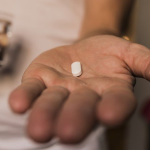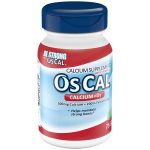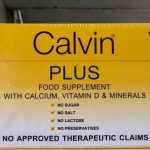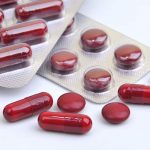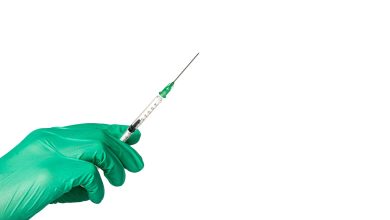Hybrin: Uses, Benefits, Dosage, Side Effects, Interactions, COVID-19

What is Hybrin?
Hybrin is a nutritional supplement containing vitamin C also known as ascorbic acid. It is used to treat and prevent many conditions, from the common cold and COVID-19 to arthritis and Alzheimer’s disease.
Hybrin is also used in the treatment and prevention of a large number of disorders like diabetes, atherosclerosis, cataracts, glaucoma, macular degeneration, stroke, heart disease, and cancer.
Hybrin plays many other roles because vitamin C is necessary for the growth, development, and repair of all body tissues. It’s involved in many body functions, including the formation of collagen, absorption of iron, the proper functioning of the immune system, wound healing, and the maintenance of cartilage, bones, and teeth.
Vitamin C is one of many antioxidants that can protect against damage caused by harmful molecules called free radicals, as well as toxic chemicals and pollutants like cigarette smoke. Free radicals can build up and contribute to the development of health conditions such as cancer, heart disease, and arthritis.
Benefits of Hybrin
The Benefits of Hybrin include:
- It helps the body produce collagen, L-carnitine, and some neurotransmitters.
- As an antioxidant, it helps remove unwanted substances known as reactive oxidative species (ROS) from the body.
- It helps the body absorb iron.
- It boosts the immune system.
- It enhances wound healing.
How should I take Hybrin
Dissolve 1 effervescent tablet in a glass (2.5 dl) of water. (200 ml). The recommended daily intake of 1 tablet should not be exceeded. Food supplements are not a substitute for a varied and balanced diet and a healthy way of living.
Follow the directions on the package or prescription label carefully, and ask your doctor or pharmacist to explain any part you do not understand. Take Hybrin exactly as directed. Do not take more or less of it or take it more often than prescribed by your doctor or written on the package.

What Are the Side Effects of Hybrin?
Taking more than the recommended amount of Hybrin, which is more than 2,000 milligrams per day, results in side effects such as:
• Abdominal pain and cramps
• Altered mental status
• Bleeding per rectum
• Bone fractures
• Diarrhea
• Drying of the mucus membranes
• Epistaxis (bleeding through the nose)
• Fatigue
• Fever
• Hair loss
• Headache
• Heartburn
• Insomnia (sleeping disorder)
• Irritability
• Kidney stones
• Menstrual abnormalities
• Muscle pain and weakness
• Nausea and vomiting
• Seizures
• Weight loss
Higher doses are more likely to lead to side effects. Doses over 2,000 milligrams a day may increase the risk of diarrhea and kidney stones. If you have a history of kidney stones, taking more than 1,000 milligrams a day may increase your chances of having more.
Precautions
Hybrin may not be right for everyone. Talk to your healthcare provider first if any of the following apply to you:
• Undergoing cancer treatment: Ask your oncologist whether a vitamin C supplement like Hybrin is right for you. They can interact with some cancer therapies.
• Chronic kidney disease: Discuss supplementation with your healthcare provider. Hybrin can increase oxalate formation and lead to kidney failure.
• G6PD: Large amounts of vitamin C have caused hemolysis (the breakdown of red blood cells) in people with a metabolic disorder called glucose-6-phosphate dehydrogenase (or G6PD). However, this is uncommon.
• Iron overload: Hybrin can exacerbate symptoms since it has a role in iron absorption.
Can Hybrin interact with my medication?
Hybrin can interact with several medications including:
- Aluminum. Taking Hybrin can increase your absorption of aluminum from medications containing aluminum, such as phosphate binders. This can be harmful to people with kidney problems.
- Chemotherapy. There is concern that the use of antioxidants, such as Hybrin, during chemotherapy might reduce the effect of chemotherapy drugs.
- Estrogen. Taking Hybrin with oral contraceptives or hormone replacement therapy might increase your estrogen levels.
- Protease inhibitors. Oral use of Hybrin might reduce the effect of these antiviral drugs.
- Statins and niacin. When taken with Hybrin, the effects of niacin and statins, which might benefit people with high cholesterol, could be reduced.
- Warfarin (Jantoven). High doses of Hybrin might reduce your response to this anticoagulant.
Can I take Hybrin and alcohol together?
No, we do not recommend taking Hybrin with alcohol. However, studies have shown that taking 2 grams of vitamin C one hour before alcohol consumption increases the rate at which alcohol is cleared from the blood, and may reduce acute toxic effects on the liver.
Storage
To properly store Hybrin, follow these steps:
- Keep them in their original container: The original container protects the tablets from moisture, light, and air.
- Store in a cool, dry place: Heat and humidity can degrade the potency of Hybrin tablets. Therefore, it’s important to keep them in a cool, dry place, away from direct sunlight.
- Keep the container tightly closed: Make sure the container is tightly closed to prevent moisture from getting inside.
- Follow the expiration date: Check the expiration date on the Hybrin container and use the tablets before it expires. Expired tablets may not be as effective.
By following these simple steps, you can ensure that your Hybrin tablets remain potent and effective for the duration of their shelf life.

